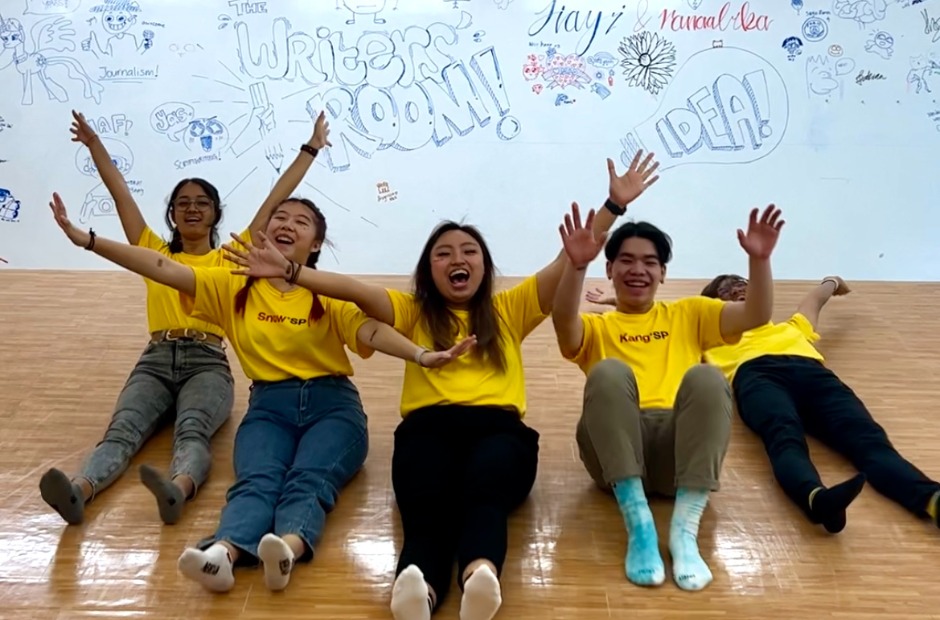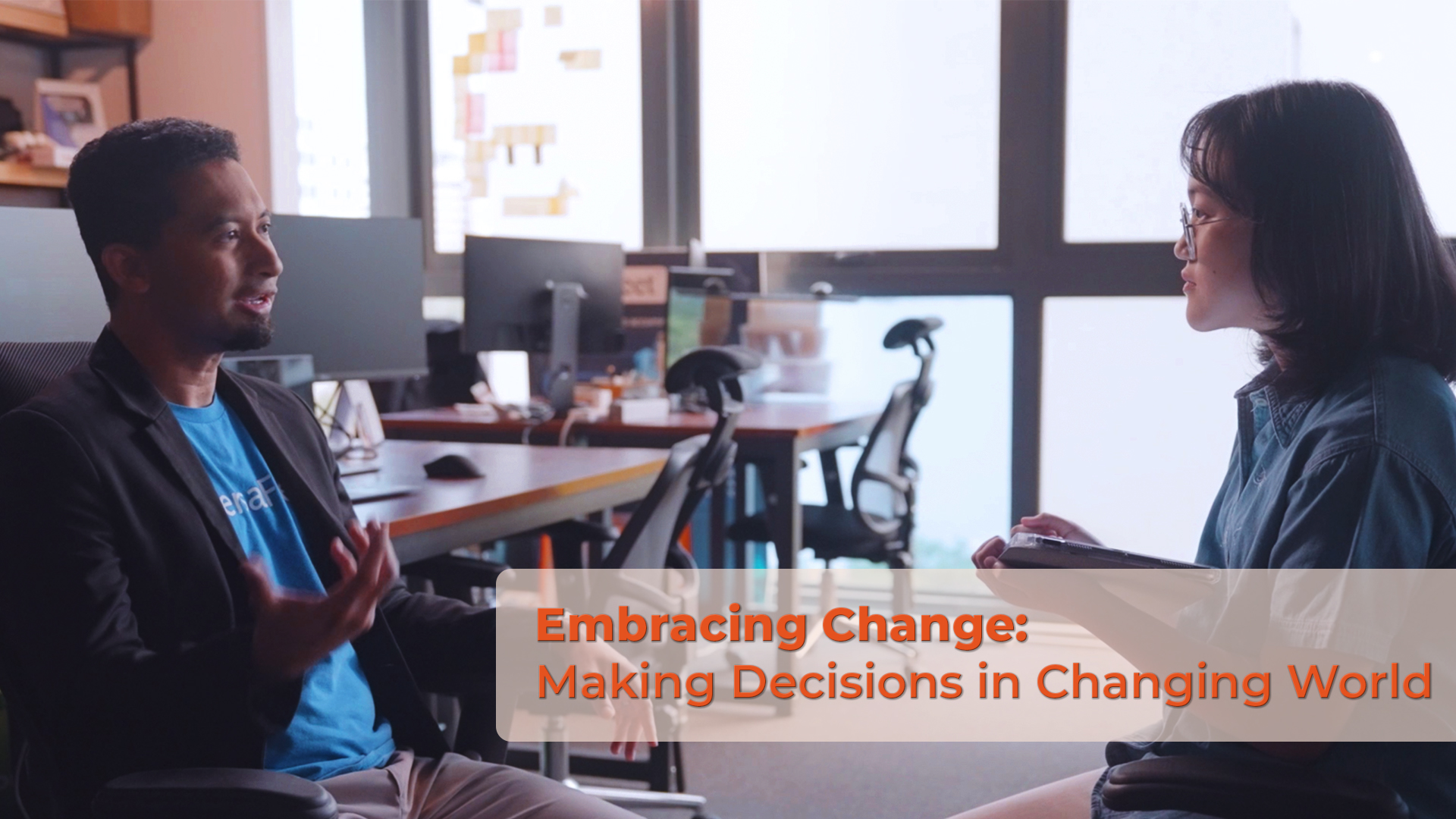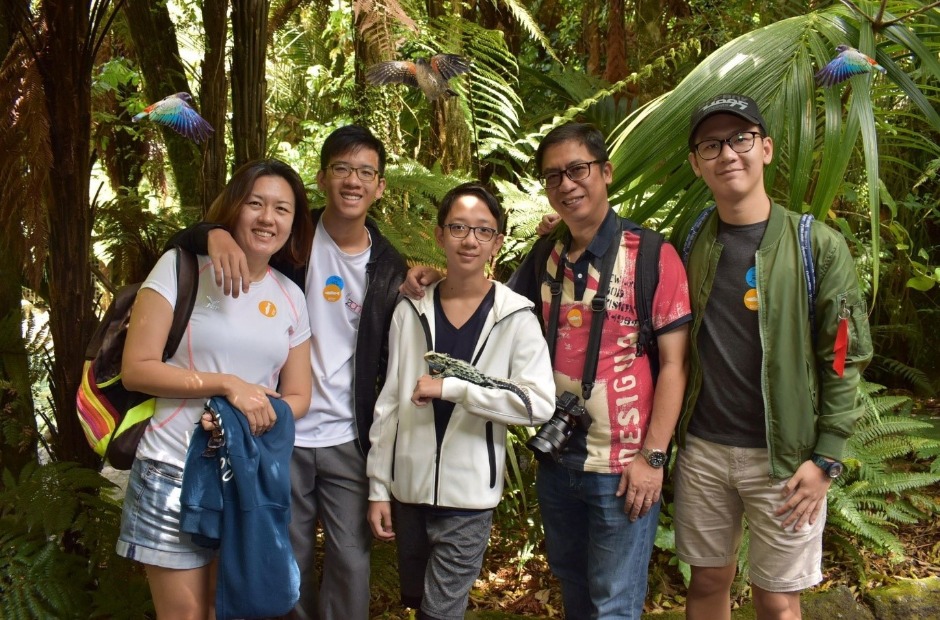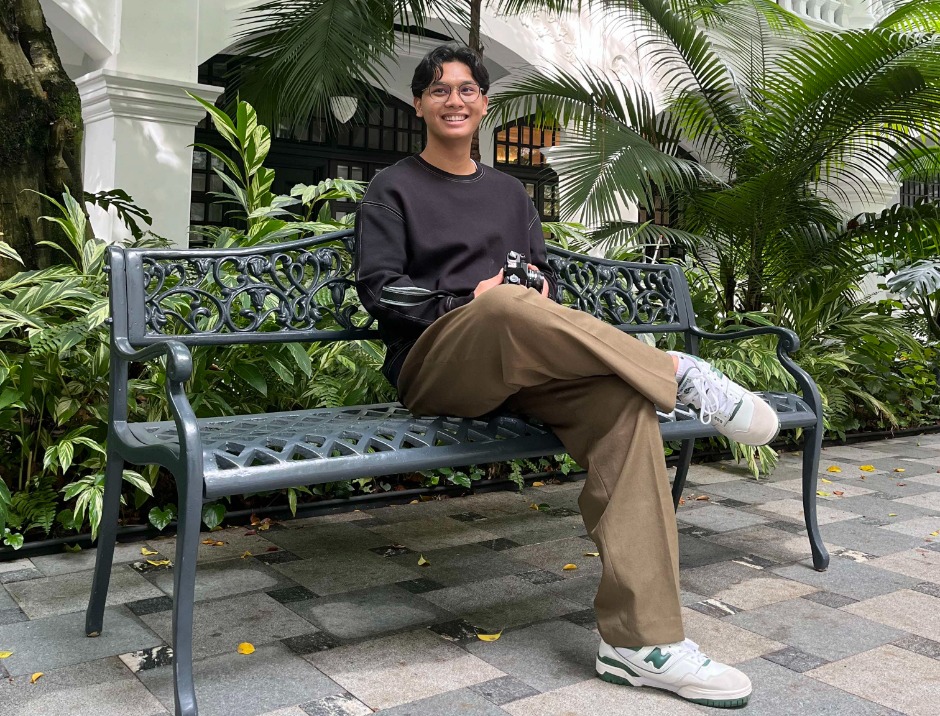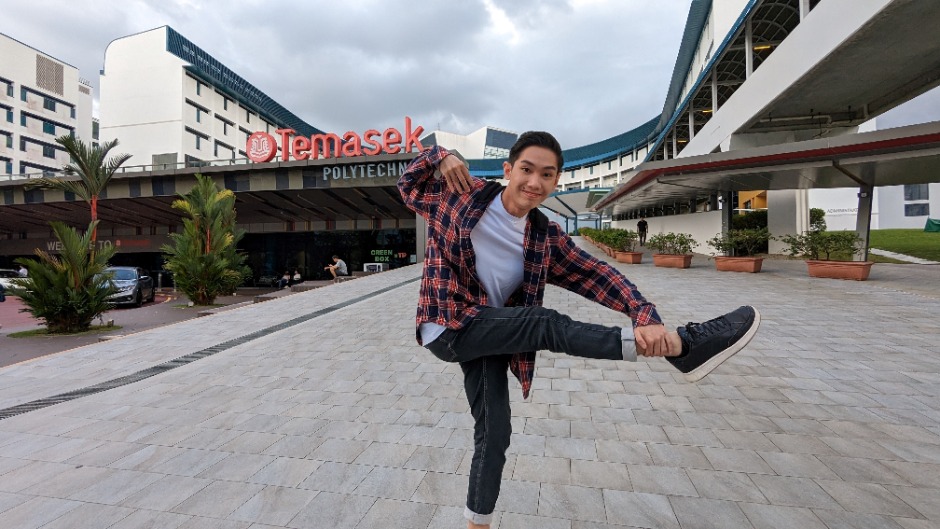Second Chances
09 Jun 2017
.jpg)
Angel Low quit veterinary school only to discover her real passion: teaching special-needs children
Six months into her course at Temasek Polytechnic, Angel Low made the decision to quit school.
“It felt so unconventional to leave and try something else. But I felt there wasn’t any point staying because I know that I wouldn’t be going in this field,” she shares.
She had selected the veterinary course as she liked dogs and cats, but soon found out it was more than just learning about cute, furry animals. Classes included studying about cows, pigs and horses, and even how to operate on them.
“I couldn’t, I couldn’t,” she recalls, her voice rising as memories rushed back. “I struggled for quite long. I was really stressed and I couldn’t eat or sleep properly.
“I was doing something that I didn’t like. I was dragging myself (to school) every day.”
But leaving school was not that easy. Her father, who had wanted her to study business, preferred that she complete the course.
Angel, however, mustered up the courage to leave school altogether as none of the courses appealed to her then. Her mother was supportive, and told her to take a break before thinking of her next step.
With time on her hands, she frequently sent her younger sister to kindergarten where she met the principal, Ms Ava Wang, and made a good impression on her. Ms Wang eventually asked if the friendly teen wanted to work at the kindergarten.
The 17-year-old said yes, and from that, discovered her love for teaching. Now 22, five years later, she has completed a course on early childhood studies at Temasek Polytechnic, and is a first-year undergraduate at the National University of Singapore (NUS).
Going to work, and back to school
For over three months in early 2012, after leaving the poly, Angel worked at Bedok Methodist Church Kindergarten. From 8am to 4pm each day, she was a teacher assistant, helping out at different classes.
She was a natural with children, with her sweet and sunny demeanour as well as her experience taking care of her then-four-year-old sister.
“It’s really very fulfilling when you see that [the children] are learning something, that you are teaching them and then they know how to apply it,” she says.
One boy stood out from her K2 class of six-year-olds. He was, “a bit different from the rest”, she says.
“He didn’t mix around and he was always sitting on his own, talking to himself, like in his own world. I just felt an inclination towards him, so I started spending more time with him,” she recalls.
Soon, he opened up to her. “He could not express his feelings…and had a lot of repetitive speech [patterns]. But he was always holding the same book and looking for me to tell him the whole story all over again, and he would do drawings for me.”
She has kept every one from simple squiggly lines to pictures of the sun or stick figures.
“He was the reason why I stayed on,” she shares, adding that this boy with special needs sparked her passion for teaching.
Ms Wang, who noticed Angel’s dedication to her work, encouraged her to enrol in early childhood studies at Temasek Polytechnic.
By then, the application had closed and she had to appeal. “I was quite scared to jump into it,” she says. But Ms Wang coaxed her to try.
She did not hear from the polytechnic until just before school was due to open in April. The course manager called her in for a meeting where she had to write a paper on why she wanted to be in the course.
“A few days later, she called me up and said I got in. And she sent me the matriculation package,” she said.
This time, she completed the course, she says with a laugh, adding: “I really enjoyed it.” She graduated second in her cohort.
Passion for special-needs children
Armed with her diploma, she returned to the same kindergarten to teach. This time, she was the main teacher for the N2 class of four-year-olds.
It was this class that confirmed her affinity with special-needs children. There were two of them in her class, and she was told by colleagues that “you are going to have a very difficult class”. But she was unfazed.
When she met the first boy, she found him “just so sweet” even if he could not sit still and listen to instructions. He also refused to hold a pen to write or draw.
“But he was a very smiley boy, and he would talk to you about Thomas the Train,” she said, adding that he improved over the year. “He didn’t run around as much, he could sit down and draw.”
She also had another boy who was less active, but had difficulty expressing himself and interacting with other children. By the end of the year, she had helped him find a playmate.
Her joy in seeing these two boys make progress was immeasurable. It prompted her to plan a career in teaching special-needs children, making a move to join Pathlight School at the end of 2015 – a year after teaching in the kindergarten.
She got into the six-month internship programme at Pathlight. “It was a very rewarding experience,” she says, particularly pleased with new skills like the use of visuals and rewards to motivate children who do not respond to traditional teaching methods.
After her internship, she decided to further her studies in early childhood education. She applied and was accepted to Boston-based Wheelock College. But she changed her mind after speaking to some of her former lecturers.
Her diploma in early childhood is more than sufficient for a career in this field, they advised her. If she still wanted to further her studies, they encouraged her to learn something new to complement her current knowledge in early childhood, giving her more career choices.
“I felt, ’Yeah, that’s true.’” I wanted to give myself more options,” she said.
Angel is now in the National University of Singapore’s faculty of arts and social sciences, where she intends to major in sociology. The study of society and human relations, it would help her understand social order and change, useful in her interactions with special-needs children, she believes.
For now, she is now learning to cope with a more academic environment with a “crazy” amount of reading and essay writing. “I take it one step at a time,” she said.
She has not forgotten her passion. “I just know that I want to work with children with special needs, in whatever way.”

